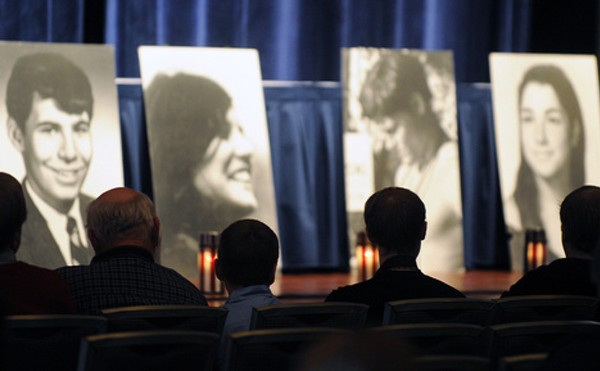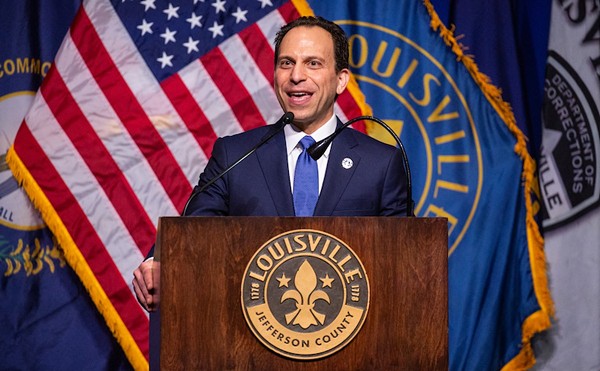By Mary Cartledghayes
Way back in July I heard Karen Rontowski at Comedy Caravan. In her routine she mentioned growing up Methodist and went on to suggest that United Methodists are a bit squishy in their theology. She said, “I think they believe … umm … mmm … Take care!”
As a United Methodist clergywoman, I’m OK with the jokes. “Take care,” although not demonstrably Christian, at least reflects kindness on our part. So does “be nice,” which, according to one of my professors at Duke Divinity School, is the Methodist motto. Less gracious people throw words like wishy-washy at us.
There’s a difference between being wishy-washy and being reluctant to use religion for political gain. You didn’t see Methodists in the center ring during the circus that developed around Michael and Terri Schiavo. Also, during the 2004 election campaign, some Roman Catholic clergy said John Kerry should be refused communion because he supported abortion rights. We United Methodists support abortion rights, too, but we don’t refuse communion to politicians who want to outlaw abortion.
When people say we’re wishy-washy, what they really mean is that our standards aren’t very high. On the contrary: Our standards are virtually nonexistent. Or they were until October 2005. Since then, your guess is as good as mine about what it means to be Methodist.
Here’s what happened. Edward Johnson, a pastor in Virginia, refused church membership to someone who wanted to transfer in from another denomination. He’d been visiting for a while, sang in the choir, and so on. Johnson refused to let the man join on the grounds that he was gay.
Last summer, the UM clergy in Virginia voted to place Johnson on unpaid involuntary leave. The reason? He had intentionally violated church law. Our legislative and doctrinal manual, “The Book of Discipline,” states that: “All people may attend worship services, participate in its programs, receive the sacraments and become members in any local church in the connection.”
We’ve always been inclusive with a capital “I.” That meant that nobody — not pastors, not bishops, not congregations — has the authority to pick and choose church members. We’re inclusive with the sacraments, too. We’ll baptize anybody: infant, teenager, elderly — we love ’em all. It’s the same with communion. Age, denomination, marital/divorce status — none of those things count.
Church historian Gayle Carlton Felton says our inclusivity is based in our belief that “the sacraments belong to God, who graciously offers them to all who will receive.” Sacraments, church membership or participation: God’s doing the work. Clergy are the handmaidens. Historically, we’ve ordered our communal life around the certainty that God is the ultimate authority.
Back in Virginia, some Methodists were objecting to Johnson’s involuntary leave. They said “the ability of local clergy to make their own decisions” was compromised in October; to the surprise of many of us, our judicial authority agreed. They reinstated Johnson. Not only that, they declared that pastors are responsible for deciding who can and can’t join the church.
Numerous individuals and organizations, including our bishops, have asked Judicial Council to reconsider. Meanwhile, I’m trying to adapt to the notion that God’s no longer in charge.
If we get to pick and choose people who aren’t good enough to join the body of Christ, why start with a gay man? Rich people are a lot more dangerous to our salvation. Let them figure out how to get a camel through the eye of a needle without our help. Otherwise, guilt by association might keep us perfect people out of heaven.
I don’t see any reason to let poor people be Christians, either. I know Jesus embodied a preferential option for the poor, but let’s be realistic: He never had to replace the leaking roof of a sanctuary. If he had, he’d have advised us to reserve membership for people who can make a contribution.
We’ll no doubt become a more harmonious and homogenous body if Judicial Council’s opinion stands. That’ll free up Sunday mornings for a lot of us. Instead of going to church to worship God, we can stay at home, look in the mirror and pay homage to our own images.
Mary Cartledghayes is ordained in the South Carolina conference of the United Methodist Church and is the author of “Grace: A Memoir.” Contact her at [email protected]





